|
Between 15–17 May Hanoi will host TECHFEST Vietnam 2015, introduced in 2 previous Startup Commons’ posts: TECHFEST Vietnam 2015 and TECHFEST Vietnam 2015: Investors’ Profiles. In this post, I would like to present the perspective of one of the event co-organisers: HATCH! PROGRAM, an incubator based in Hanoi which provides mentorship, connections and financial support to early-stage entrepreneurs. Recently I have had an interview with its 2 representatives: Pham Quoc Dat, Cofounder and Director, and Le Viet Dat, Cofounder and Head of the Community Building Program. Firstly, they explained why TECHFEST Vietnam 2015 is an important event for the startup community and presented activities which they will be coordinating. The second part of the interview focused on other HATCH! PROGRAM projects. What kind of impact do you think TECHFEST 2015 can have on the startup ecosystem in Vietnam? How will it affect your own work? Pham Quoc Dat: TECHFEST 2015 is a festival for technologists, entrepreneurs, startup supporting organisations based in Vietnam as well as organisations and investors from the USA, EU, Israel, Australia, Singapore and other Southeast (SE) Asian nations. Not only does this event provide an opportunity for the startup ecosystem to look back and celebrate all tech achievements, but also creates a platform for open discussions and sharing experiences to address challenges and enforce future innovative technology solutions. It will contribute significantly to the startup ecosystem with valuable insights, strategic directions as well as a national and international network. Then we can witness more successful stories of Vietnamese tech startups. As one of the most active community builders, HATCH! PROGRAM is glad to be a co-organiser of TECHFEST 2015. The spirit and objectives of the event are aligned with our mission and strategic activities: community building, startup incubation and seed funding. We are looking forward to opportunities which this 3-day event can brings us: to work with the most promising startups and widen our network of local and international experts and other regional startup supporting organisations. This will help HATCH! to get some new insights into the market, select the most competitive startups for our incubation and funding, and also tighten our network with national and international partners. In what ways do you support the National Agency for Technology Entrepreneurship and Commercialization Development (NATEC), the Ministry of Science and Technology of Vietnam, in organisational matters? Are you going to be in charge of any activity during the event? Le Viet Dat: HATCH! PROGRAM is fully in charge of developing the TECHFEST brand identity and values as well as consulting and managing the communication campaign and event logistics. We also contribute to the programme with 2 activities: a workshop on Translation of Science and Technology into a Good Business with Dr David Hardman, CEO of Birmingham Science Park, and a fireside The Missing Dots. Could you tell a bit more about these 2 events? Le Viet Dat: In the workshop Translation of Science and Technology into a Good Business, Dr Hardman will share his knowledge and experience in transforming science and technology into a working business model. He will present biotech as a potential direction. During the fireside The Missing Dot, HATCH! wants to initiate an open discussion on product development. This fireside aims to raise interests and concerns from different perspectives on how to develop more competitive and innovative products in Vietnam and international markets. It will also fire up some initial practical solutions. How would you encourage participating in TECHFEST Vietnam 2015? Le Viet Dat: TECHFEST 2015 has been very attractive to many technology enthusiasts, therefore, there is no doubt that we will attract a thousand participants. What we are working on is to encourage a ‘real discussion’ and ‘real interaction’ in every event activity. We invited national and international renowned technologists, experienced entrepreneurs and industry experts to provide market insights and initiate a talk about the next trends and initial solutions. We will try to create a real startup atmosphere so they will be more willing to share their thoughts. HATCH! PROGRAM has launched 3 initiatives: (1) HATCH! COACH, product development training, (2) HATCH! NEST, co-working space, and (3) HATCH! ANGEL, an angel investor network. Each project is tailored to specific needs of Vietnamese startups. What results have you already achieved? Pham Quoc Dat: It seems that these 3 projects are separated, however, they closely support each other. Community building activities such as Coffee Talks, networking events and co-host events, HATCH! COACH, a hands-on education course, and HATCH! NEST, our co-working space, help us to build up a portfolio of startups and data for resources in Vietnam. HATCH! ANGEL will select the most promising startups to put into short term incubation and provide seed funding. Last year we successfully made one deal: after 3 months of incubation, we matched a startup working in the educational field with some angel investors. At the launch of HATCH! ANGEL last month [on 23 April – ed. note], we had one pitch in front of 25 angels. HATCH! COACH focuses on a product development training programme which has received more than 40 applications. It has addressed directly the need for short and effective training for startups, especially when they are in the product development stage. The new course will be officially launched in early June. HATCH! NEST is now under re-construction and expected to open for leasing and event organising in late May. Many programmes and activities of HATCH! such as HATCH! COACH will be organised at HATCH! NEST, where we can collect all resources and enforce strategic connections between startups and their supporters. It received 10 applications in just one day after an early-bird registration was announced. HATCH! ANGEL is more ambitious. It provides what startups need exactly: seed funding. We will select the most promising startups to facilitate investment relationships with angels within our network. Once a month we will organise a pitching event to provide market insights and updates to our angels and also opportunities for 2 startups to sell their businesses. In June there will be the 3rd edition of HATCH! COACH, product development training. Could you describe the training programme in more detail? Le Viet Dat: HATCH! COACH aims to guide young entrepreneurs through the process of startup development with hands-on coaching. This time the training will focus more on product development: the process, techniques and the product methodology behind. During 6 weeks, teams will be guided through the main stages that a product manager should be aware of: from designing reliable experiments for market validation and iterating UX / UI design to growth hacking. They will be instructed by coaches who are well-known in the community for their expertise and successful products. They will share their know-how, guide and help teams to accelerate the development of their products. At the end of the course, they will be presented in a show case, and the most promising and committed team will receive USD 500 as initial support for the next development stage of their product. What kind of startups usually enrol in the training? Le Viet Dat: Each training has a specific theme based on careful market research. The participants of HATCH! COACH 3 are startup product managers, technology developers, designers and wannabe entrepreneurs who want to refine their products. At the moment, there are 25 investors in HATCH! ANGEL. How are you going to attract more investors to your network? Pham Quoc Dat: We have built up the angel network based on our current network and activities, especially the 2nd annual HATCH! FAIR. We have worked with a few high ‘net-worth’ individuals and invited them to join our network. Additionally, they present themselves as our representatives and supporters to refer more contacts to HATCH! and invite their friends or partners to become our angels. Besides, we also approach other potential connections by actively joining networking events and organising or co-hosting events on an international scale such as HATCH! FAIR and TECHFEST or thanks to our international partners such as the World Bank, Tigers@Mekong or Seedstars World. There are 3 investment areas of HATCH! ANGEL’s interest: technology, education and agriculture. Special attention is given to innovations in technology. What results do you aim to achieve? Pham Quoc Dat: This year HATCH! ANGEL aims to attract 100 applications from early-stage startups which are seeking seed funding. Each month 2 startups will be chosen to participate in a workshop and pitching event, where they will be able to sell their businesses to a board of angel investors. We expect to close 2 deals this year. HATCH! ANGEL is in a pilot year, therefore, we surely face a number of challenges and we will make the best use of all opportunities we have and our failures to prepare for the official launch of HATCH! ANGEL FUND in 2016. What are your plans for the future? Pham Quoc Dat: In the near future, we want to continue our work in supporting startups, not only in terms of mentorship or consultancy, but also with funding. This year HATCH! launched the pilot for HATCH! ANGEL in Hanoi, and next year we aim to come back to HCMC [Ho Chi Minh City, Vietnam – ed. note] with our mentoring activities and especially the investing initiative [HATCH! ANGEL FUND – ed. note]. Thank you for the interview. The author of this text is Birute Birgelyte, PR and Communications Trainee at Startup Commons. You are free to re-edit and repost this in your own blog or other use under Creative Commons Attribution 3.0 License terms by giving credit with a link to www.startupcommons.org and the original post.
Quite soon there will be another startup event anniversary: the 10th Startup Day 2015. It is a one-day Stockholm startup event organised by Stockholm School of Entrepreneurship (SSES) in partnership with Stockholm Business Region, an investment promotion agency owned by the City of Stockholm, Braintree, BDO, Industrifonden, Prime, Quattroporte, SUP46, Trustly, IBM as well as some startups and other companies. The event slogan reflects the main event idea: 1000 minds. 500 founders. 1 day. It means that there will be over 1000 participants: entrepreneurs, startups, investors, media representatives, etc. At least 500 of them will be founders of companies operating in Sweden or at the international level. One day appointed to the event indicates that the event programme will be very intense. Programme The event will start with a few speeches. One of the first speakers is Cristina Riesen, General Manager EMEA at Evernote, who will talk about how intelligence, creativity and computing affect work routines. Another speaker, Jesper Kouthoofd, Founder of Teenage Engineering, will share some insights on how to create a good platform for work or personal needs. Henrik Lenberg, Founder of Auxy, will give a speech with a self-explanatory title: Building a Product that People Love. In addition, David Rowan, Editor of WIRED UK, will later interview all three speakers. The next point on the agenda is Skills Workshops and Startup Pitches, which will be taking place at the same time as some other speeches. The workshop session consists of three 30-minute workshops. In the first one, Alex Budak, Country Manager Sweden at Reach for Change, will introduce social entrepreneurship and explain how to create more impact with startups. In the next workshop, Axel Cornell, Scrum Trainer, will present a user story map, illustrate it with everyday examples and show how it can be used to work on backlog. Finally, Laura Lilja, CEO of Nordic Search, will discuss the importance of search engine optimisation (SEO) for startup work. Simultaneously, there will be a startup pitch session. There will be eight 20 or 30-minute pitches which will be moderated by Sara Mattsson, Community Manager at STING, a Swedish incubator, and Terrence Brown, Associate Professor of Entrepreneurship and Innovation at the Department of Industrial Economics and Management, KTH Royal Institute of Technology in Stockholm. The performances will be evaluated by investor panels. To see the complete list of the participants, please click here. There will also be another set of simultaneous talks. For example, Caroline Walerud, Cofounder of Volumental, will focus on the following topic: Shifting the Fashion Industry from Mass Production to Fully Customized Products. Ebba Åkerman, Founder of United Invitations, will discuss what constitutes startup success in Stockholm. Ankit Desai, Digital Strategist at Universal Music, will explain why Stockholm is successful in the music industry. There will also be a Paypal Seminar on new payments opportunities for startups. Later Fredrika Gullfot, Founder and CEO of Simris Alg, will examine the topic: Empowering Change: Activism Through Entrepreneurship. Martin Willers, Cofounder of People People, will concentrate on the characteristics of establishing a company in the system context. The programme will close with the explanation of bootstrapping by Martina Elm, Cofounder of Confetti, etc. More information can be found on the official event website. The author of this text is Birute Birgelyte, PR and Communications Trainee at Startup Commons. You are free to re-edit and repost this in your own blog or other use under Creative Commons Attribution 3.0 License terms by giving credit with a link to www.startupcommons.org and the original post.
Between 23–24 April Amsterdam will host The Next Web (TNW) Conference Europe 2015. This year the event celebrates its 10th anniversary. Such a date can only mean one thing: it is an event worth attention. What is so special about it? Tim Ferriss, Author of The 4-Hour Work Week, describes it as follows: “TNW is the best breed of event. Smart attendees, provocative talks, and masterful execution. There are few things I travel around the world for, but TNW is one of them.” The unique character of the conference is also reflected by the main event objectives, which are the following: (1) to offer many valuable discussions on the latest web trends, (2) share the best business practices and (3) provide a networking platform for the leading influencers of technology and innovation, startups with international growth potential and companies which have already achieved success. Some facts about the TNW Conference Europe The conference is an annual event founded by 2 serial entrepreneurs: Boris Veldhuijzen van Zanten and Patrick de Laive in 2006 in Amsterdam. The conference soon attracted more international attention and became one of the “must-attend [events] for web enthusiasts and tech companies around the globe” (iamsterdam.com). This year the Amsterdam conference has already attracted over 3500 participants. The interest in the event is well illustrated with a long list of international partners supporting the project. There are such names as Startup Amsterdam, Adyen, Persado, Braintree and FlinchFactor, to mention a few. The Next Web team also organises TNW conferences and other business events in the US and Latin America. One of their next projects is The TNW (TNW) Conference in New York in November 2015. Programme and attendees The TNW Conference Europe in Amsterdam is a 2-day event with a hectic agenda. There will be many talks, presentations, (panel) discussions, interviews, boost startup sessions and hack battle presentations, etc. The programme is still being updated. We would like to review some of the activities and present some attendees. The conference will be opened by Boris Veldhuijzen van Zanten, Cofounder of TNW, and Neelie Kroes, former Vice President of the European Commission responsible for the Digital Agenda for Europe. At the moment, she is working as Special Envoy for Startups in the Netherlands. Apart from Ms Kroes, there will be also other politicians attending such as Sophia in ‘t Veld, a Dutch representative in the European Parliament working on new European privacy laws, as well as Kajsa Ollongren, Deputy Mayor of Amsterdam. Thus, there will be an opportunity to receive updated information relevant for digital business from the top-level politicians and ask them some questions. The event offers many thought-provoking talks. For example, Gary Shapiro, CEO of the Consumer Electronics Association, will give a speech on Disruptive Innovators Under Attack, in which he will discuss the opportunities and potential challenges which the newest business models and technologies can bring. He will also invite to a discussion on how to balance government regulations on innovations and free market competition. Another engaging speech will be No Gatekeepers – Innovation at Scale at Amazon.com by Werner Vogels, Chief Technology Officer at Amazon.com. He will share Amazon’s best practices of innovation management. He will stress the role of strong company values and culture. Finally, he will discuss some opportunities on Amazon.com platforms for innovative projects. There are also many other talks worth attention with self-explanatory titles: (1) Why Most Digital Business Transformations Will Fail (And How to Avoid It) by Martin Gill, Vice President of Forrester, (2) The Secret to Creating Successful Digital Products and Services by Aaron Shapiro, CEO of Huge, (3) The Next New Thing: Trends in the World of Venture Capital and Startups by Deborah Magid, Director of Software Strategy at IBM Venture Capital Group, and (4) Getting to Alpha – The 7 Habits of Breakthrough Innovators by Amy Jo Kim, Cofounder of Shufflebrain, etc. Furthermore, the conference will hold various panel discussions. One interesting example is Hollywood and Startups with the following participants: Cody Simms, Managing Director of Techstars, Robyn Ward, Head of New Media Ventures, UTA, Daniel Altmann, Cofounder and CEO of Naritiv, and Nick Adler, VP of Business Development at Cashmere Agency. Many questions will be discussed: startup engagement with Hollywood, entrepreneur relationship management in the entertainment industry, differences between talent agents, managers, influencers, etc. There will be also explained how content deals are done, whether startups should raise capital from the entertainment industry and the characteristics of tech startup work in the entertainment industry. In addition, among the conference participants, there will be also some recognised business book authors, who will present some ideas from their books. For example, David Allen, Author of Getting Things Done, will share his expertise on personal and organisational productivity. Samuel Hulick, Author of The Elements of User Onboarding, will teach about growing a strong userbase by offering quality onboarding experiences for users. Gabe Zichermann, Founder of Gamification Co. and Author of The Gamification Revolution, will share insights on developing a successful gamification strategy. Finally, some entrepreneurs and representatives of some big international companies will share their experience in the form of talks, presentations or interviews to guide others. The list of participants is quite long. There are such names as Samir Patel, President and CEO of Growth Machines and Growth Mentor at 500 Startups, Nicolas Brusson, Cofounder and COO of BlaBlaCar, Jitse Groen, CEO of Takeaway / Thuisbezorgd, Pieter van der Does, Cofounder and CEO of Adyen, Eric Brewer, VP of Infrastructure at Google, Xabier Ormazabal, Head of EMEA Marketing at Dropbox, Mark Randall, VP of Creativity at Adobe, Hugo Raaijmakers, Global Innovation Director at Philips International, etc. It is quite difficult to describe the TNW Conference Europe 2015 concisely without risking of omitting some important information. Naturally, in order to form a more informative opinion about the conference, you should refer to the official event programme. The author of this text is Birute Birgelyte, PR and Communications Trainee at Startup Commons. You are free to re-edit and repost this in your own blog or other use under Creative Commons Attribution 3.0 License terms by giving credit with a link to www.startupcommons.org and the original post. Photo credit: Ben Rogers. The photo was originally published on Flickr. It has been used to illustrate this text under Creative Commons Attribution 2.0 License terms. No changes have been made.
Startup Commons supports TECHFEST Vietnam 2015, a tech startup event organised by the National Agency for Technology Entrepreneurship and Commercialization Development (NATEC), the Ministry of Science and Technology of Vietnam, in cooperation with hub.IT, Tech In Asia, Hatch! Program and the Founder Institute. We already introduced the event in one of our recent blog posts. This time we would like to present you some event investors hoping that this information could influence decisions of some of you to include this event on your May agendas. Investors’ Profiles Andrew Wong, Founder and Chief Executive Officer at MAD Incubator Not only is Mr Wong Founder and Chief Executive Officer at MAD Incubator, Malaysia, but also holds other important positions. He is President of the National Incubator Network Association (NINA) of Malaysia, a Member of the Asian Association of Business Incubators (AABI) and a Member of the PEMANDU Committee on Incubator Development at Malaysia’s Ministry of Science Technology and Innovation (MOSTI). He is also the architect of Malaysia’s Incubator Development and one of the pioneers of the ICT Entrepreneur Cooperatives in the country. At the moment, he is Chairman of the Koperasi Jaringan Usahawan Teknologi (KeJUT) Wilayah Persekutuan. In his career, Mr Wong has started 6 incubators and 2 venture capital funds. Jeffrey Paine, Cofounder of Golden Gate Ventures Mr Paine’s company is an early-stage technology incubator in Singapore. He has also established there the Founder Institute. At the moment, he is working on expanding its activities in Southeast Asia. In addition, he is an investor and advisor to Redmart, Tradegecko, Coda Payments, AtticTV and Flutterscape / monoco. Dmitry Amilov, Founder and Managing Partner of Frontier Ventures Mr Amilov has 15 years of experience in private equity and venture capital investment in the Internet and media. His work profile is rich. He was Managing Partner of ru-Net Ltd, Manager Director of Amedia, Cofounder of ivi.ru Media Ltd, Head of Media Investments in Russia and the CIS at Access Industries, First Deputy General Director and a Member of the Board of Directors at TNT, a Member of Gazprom-Media Executive Committee and Vice President of the Sputnik Group, etc. At the moment, he is Managing Partner of Frontier Ventures and a Member of the Expert Panel of the IT Cluster at Skolkovo Fund. Nguyen Hoang Ly, Founder and President of KOMTEK KOMTEK is a technology consulting and e-commerce company in Vietnam. Mr Ly worked as Technical Director at SaigonTel and General Director at Vietunion. He is also Founder and a former Board Member at Vietunion Corporation. Here he developed Payoo e-wallet. He has established several companies in Vietnam and other countries. He knows the regulations of Vietnam well and has some contacts with the government. More information on TECHFEST 2015 can be found on the official event website. The author of this text is Birute Birgelyte, PR and Communications Trainee at Startup Commons. You are free to re-edit and repost this in your own blog or other use under Creative Commons Attribution 3.0 License terms by giving credit with a link to www.startupcommons.org and the original post. Photo credit: TECHFEST Vietnam 2015.
In addition, the startup infrastructure works well at 3 different levels: local, national and global. There is a lot of support provided both by various grassroots movements and the government as well as good access to global network. Secondly, Canada has been ranked by the UNDP and the World Economic Forum as one of the easiest countries to start a business. To illustrate this, Lennox provides a few examples. She says that it is possible to start a business in Canada in less than 30 minutes. Also, the costs are low, especially, in the ICT sector. The bureaucracy has been simplified a lot and there are many procedures that you can deal with online. Thirdly, the Canadian government invests a lot in startup projects. There are many tax incentives for investment in startups. For instance, in British Columbia there are angel tax credits as well as many others. Moreover, Lennox provides some other reasons why entrepreneurs should think of setting up a business in Canada. In her opinion, operating a business is much easier thanks to public funds and the help of non-profit organisations. In addition, the country has excellent global connectivity: there is a mix of cultures and thus it is very easy to access international markets via local diasporas. Another reason worth attention is the fact that Canada has developed both strong volunteer culture and entrepreneurship culture. As a result, the Canadian society is civic-minded and involved in various enterprise projects. Furthermore, the country can offer talented and skilled workers. It is one of the highest-educated populations in the world. There is a well-developed education system: universities and colleges aim to prepare graduates whose skills are relevant to market needs. Finally, Lennox completes her list by focusing on the quality of life in Canada. She makes a point that thanks to a good demographic and geographic spread, the country has a lot of space to develop various entrepreneurial projects. The author of this text is Birute Birgelyte, PR and Communications Trainee at Startup Commons. You are free to re-edit and repost this in your own blog or other use under Creative Commons Attribution 3.0 License terms by giving credit with a link to www.startupcommons.org and the original post.
Despite the recognition of the economic and social value which technology entrepreneurs create, little attention has been paid to developing a strong startup ecosystem in Vietnam so far. Such a view is held by Dr Pham Hong Quat, Director General of the National Agency for Technology Entrepreneurship and Commercialization Development (NATEC), the Ministry of Science and Technology of Vietnam. In order to support new technological projects, the Agency has decided to organise TECHFEST 2015, an event for tech startups. It will be part of the programme of the annual Science and Technology Week. In order to provide clear information about TECHFEST, we would like to offer you a short Q&A session. Q&A: TECHFEST 2015 When and where will the event take place? Between 15–17 May at Vietnam National University. Who else supports it? The event is a collaborative project between the National Agency for Technology Entrepreneurship and Commercialization Development (NATEC), hub.IT, Tech In Asia, Hatch! Program and the Founder Institute. What are the objectives of TECHFEST? There are 2 main objectives of the event:
Who can participate? The event is open for technology and startup experts, startups, startup support agencies (incubators, accelerators), investors, potential startup clients and media companies. There are also invited some representatives from the governmental institutions, students and other people interested in technologies and startups. What kind of activities will be there? TECHFEST offers the following activities: More detailed information on the event agenda can be found here. Why is it worth participating in TECHFEST? On the official event website, there is an informative Q&A session on the benefits of participation in the event for different groups. We would like to outline the most important points. The biggest participation benefits for startups, according to the organisers, are the following:
The organisers promise startup support agencies that out of participation in TECHFEST they would get:
Finally, investors could also benefit from given opportunities:
More information on TECHFEST 2015 can be found on the official event website. The author of this text is Birute Birgelyte, PR and Communications Trainee at Startup Commons. You are free to re-edit and repost this in your own blog or other use under Creative Commons Attribution 3.0 License terms by giving credit with a link to www.startupcommons.org and the original post.  Have you ever wondered how cold weather can affect your business? Jan Ameri, Event Director at ArcticStartup, claims that “the North is an investor no-go area” in wintertime. He came up with such an idea after feedback he received from Garan Goodman, Director of Wayra Munich, during the last Arctic15 startup event in Helsinki, Finland. Mr Goodman praised networking possibilities and the event atmosphere. The only thing he complained about was the weather: “You […] should just pack these startups on a plane and fly them to someplace nice and warm. I would be happy to come to see these companies there.” His suggestion was a stimulus to organise Arctic Startups in the Sun. Murcia Edition, the southernmost Nordic startup event so far. About the event Arctic Startups in the Sun. Murcia Edition is a collaborative project between ArcticStartup, a Helsinki-based startup media company in the Nordic and Baltic region, and the Institute of Development of the Region of Murcia (INFO), Spain. It will take place between 25–28 March in Murcia and Cartagena. It aims to collect 50 Nordic / Baltic companies and 50 Spanish companies and invite over 20 international investors in order to offer them comfortable networking conditions, promote internationalisation and direct private investment as well as to help to develop innovative business in the Region of Murcia. The main partners of the event are: Finpro, Team Finland, Telefónica, La Verdad, the Barrabés Group and the Vocento Group. Programme The event programme includes a variety of activities: workshops, coaching sessions, presentations, B2B events and networking events. There will be also appointed some exhibition space to present company projects and establish contacts with potential investors and partners. The programme will cover the following topics: B2B & B2C Software and Services like Media, Web, Mobile, Gaming and Ecommerce, Plus Sports, Health and Wellbeing, Cleantech and Energy, Education, Logistics, Food Technology and Tourism. For more information, please see the official event programme. Participants Both early-stage and late-stage companies are welcomed to participate. The organisers may also consider accepting some other companies involved in the above-mentioned areas to the event. There are invited representatives of various organisations to give speeches: Andrés Vicente Gómez, LolaFilms, Carlos Barrabés, Barrabés Group, Roberto Tanzi-Albi, Ambassador of Finland in Spain and Hugo de los Santos, Telefónica, to mention a few names. To see the complete list of the speakers, please visit the official event website. Why to participate in Arctic Startups in the Sun. Murcia Edition? The event offers an excellent communication platform for Nordic and Spanish entrepreneurs and international investors involved in technological projects. It is an important step to establishing valuable business connections which could end up in international partnerships or good investment deals. Sharing experience and knowledge, getting some guidance and critical insights on entrepreneurship can help you to turn your own startup project into another international startup success story. It is also worth mentioning the economic and social value of Arctic Startups in the Sun. Murcia Edition. It could provide a solid foundation for innovative business in the Region of Murcia. The economic development would have a significant impact on social welfare: more business activities in Murcia would eventually mean higher living standards of the residents. From the Nordic perspective, the event could be considered as a bridge both to the Spanish market and the Latin American market. Not only would the Nordic and Latin American countries benefit economically from closer cooperation, but again – like in the case of Murcia – all local communities would. As a result, the event could contribute a lot to developing a solid global startup ecosystem, in which economic growth would go side by side with social welfare. The registration form can be found here. The author of this text is Birute Birgelyte, PR and Communications Trainee at Startup Commons. You are free to re-edit and repost this in your own blog or other use under Creative Commons Attribution 3.0 License terms by giving credit with a link to www.startupcommons.org and the original post.
Every startup will have a passionate entrepreneur behind it who fell in love with an idea enough to give it his all. But to succeed, that is not enough. Others have to fall in love with your idea too. Others include investors. Here are the top traits that emerged out of the discussions. These are 3 key questions investors will seek answers from entrepreneurs before deciding on funding the startup.
1) Do you have the guts and drive to cross the dark valley? “When an entrepreneur succeeds, there is so much glamour and halo attached to them. What is forgotten or undervalued is the walk through the dark valley entrepreneurs go through,” Vani Kola, Managing Director, Kalaari Capital, told us. Before she became a VC, Vani Kola had built two successful companies in Silicon Valley and exited them with billion-dollar valuation. “There are times when you can’t access capital, nobody believes in your idea, and even when you are winning or think you are winning, nobody really gives any value to the growth you are creating. Sometimes you don’t know how in the next six months you can take your business to the next level. There are so many lonely, dark spots in the growing of your business. As I have experienced those personally, I look at an entrepreneur and see, do they have the guts and drive inside them to cross that black hole? Will they get consumed by that? Will they quit or will they persevere?” This is one quality she looks for in an entrepreneur. “That elusive quality of perseverance — People who can compartmentalise these inevitable problems, which are costs every entrepreneur has to bear, and have immense faith on their product or service, and have a deep passion to pursue it — is something that I, having been an entrepreneur myself, empathise with. On the days things don’t go great, this quality will see the entrepreneur through,” she says. 2) Can you transmit your passion and faith to the investor? At the stage of seed and series A round of funding, an entrepreneur doesn’t have the numbers to back him, and therefore investors have a tough decision before them. “You don’t know whether the business will take off or taper off; you don’t know whether the entrepreneur who delivered the business from ten thousand to five millions can actually build a business that looks like it can go to 50 millions. You don’t know whether the team is fully in place to do that. You don’t know whether the market sizing is yet niche or is it going to grow to a 20 million or is it going to cross that 100 million mark which everybody is looking for. And therefore an investor is far more hesitant,” explains Karthik Reddy, co-founder and managing partner of Blume Ventures. “The investors who eventually end up cutting the cheque are those who become equally passionate about solving all those questions. They see that spark in the entrepreneur. They see that market opportunity, just as the entrepreneur sees it. At seed, it is probably an extreme version of that shared passion and faith.” 3) How good is your team or can you build a great team? However good your product is, however good a coder or business head you are, without a complimentary team member or without the ability to build a great organisation you are not going to survive and make it to series A, Karthik Reddy says. “The learning from three years of seed investing is that the team is more important in our evaluation matrix as we mature as a fund. Without a good team, even if you somehow make it to series A, you are probably going to falter before you get to series B, leave alone grand hundred million exit stories.” According to him, investors should walk away from the opportunity, however best the idea might be or however much they relate to the idea if the team isn’t strong enough or the entrepreneur looks unlikely to be a good team leader. “After all, an investor is not going to run the startup for the entrepreneur. So fundamentally, if they are not going to make their business work themselves, you shouldn’t invest in it.” _____________________________________________________________________________________ This is an edited version of a post originally posted at yourstory.com, by Malavika Velayanikal is Executive Editor of YourStory.com and Innovation Junkie. You are free to re-edit and repost this in your own blog or other use under Creative Commons Attribution 3.0 License terms, by giving credit with a link to www.startupcommons.org and the original post. Singapore has been ranked as one of the best places for startups in Asia and around the world. It is well-positioned geographically, offers great infrastructure and logistics, as well as diverse, well-educated talent pool. Singapore is strategically located within hours from fast growing economies such as China and India and consistently attracts the best and brightest minds from different parts of the world. Venture funding, government support and developed startup ecosystem, together with features mentioned above makes Singapore an attractive place for entrepreneurs. more than 50. Let’s have a closer look at some incubators and accelerators in Singapore.
1. Golden Gate Ventures It is an early stage incubator helping internet startups build and launch successful companies across Southeast Asia. Golden Gates Venture’s founding partners share a rich background building successful Silicon Valley startups and managing investments in Silicon Valley and Asia. What is interesting: For startups at their Ideation and Concepting stages, Golden Gate Venture offers 100 Day Bootcamp Program, which is run once or twice per year. Since March 2012, Golden Gate Ventures has been accredited as a Technology Incubation Scheme (TIS) incubator by Singapore’s National Research Foundation. Results: Last year Golden Gate Ventures invested $10 million into startups in their first year. The portfolio includes RedMart.com (online grocery), Coda Payments (mobile payments), and Nitrous.io (web dev tools in the cloud). 2. The Joyful Frog Digital Incubator The Joyful Frog Digital Incubator is recognized as the most successful in Southeast Asia. It is also the oldest among the pack, which should highlight why the company has the most comprehensive, systematic and consistent programs for a wide range of startup companies. The Joyful Frog Digital Incubator piloted its startup accelerator programme in 2012. Over two years JFDI startups raised over $ 7.2 million in seed funding. What is interesting: consistently achieving 60%+ success taking startups to investment in 100 days. Typical startups raise around $ 550 000. In exchange for a minority stake every team, who has been selected for the program is offered a package including cash investment, mentoring, working space. Results: 38 startups have graduated, out of those 34 are still active. 3. Jungle Ventures Jungle makes seed to early Series A investments across Asia Pacific and also operates an early stage accelerator in Singapore. Founded in 2011 with focus is on early stage investments into Singapore, India, South East Asia and other regional hotbeds of innovation. What is interesting: Startups through the seed fund accelerator can look to get: S$50-500K in startup funding, co-investment by 500 Startups, a leading SV based fund, and more. Results: Current portfolio companies include micro-lending platform Milaap, mobile commerce app ShopSpot, and vacations rental site Travelmob which was acquired by Homeaway last year. So far 27 investments has been made, 24 startups still active and 3 successful exits. Make no mistake about it. Silicon Valley is expensive. Actually, it’s very expensive. But if you’ve ever spent any time in the Valley then you already knew that. For those on the outside, then you can believe that rumors surrounding Silicon Valley’s pricey cost of living are true.
Should you move your business to Silicon Valley? Before you make that decision, here are a few things you should keep in mind? But, just how expensive is Silicon Valley really? Compared to the rest of the country, the cost of living is 87% higher in the Valley than any other American city. When it comes to housing, Silicon Valley is also the most expensive in the U.S. In fact, based on a survey conducted by Coldwell Bankers in its “Luxury Market Report 2014,” Woodside, CA is the nation’s top luxury market. Woodside wasn’t the only town located in Silicon Valley to crack the top five. Portola Valley was third, with Hillsborough coming in at number four. So, if you wanted to relocate to Woodside, expect to spend $949,000 on a two bedroom house with one bathroom and a fireplace – this for the record was the cheapest listed house in Woodside. Trulia, however, found that the average listing price for homes in Atherton at $9,347,107, which could make it the most expensive city in the country. But what’s a couple million dollars when you’re living in the same area as the guys who founded Google, Larry Ellison, Mark Zuckerberg, George Lucas and Paul Allen? In case you were wondering, there are 71 billionaires who call the Bay Area home, so of course it’s going to be expensive. So what if you’re not a billionaire? Let’s say you’re just you’re a teacher or even an engineer, what’s the price range? The median price for a home is $550,000 in the whole bay area. If you’re looking at San Francisco, it’s around $1.1 Million. And rent? You’re looking at around $3,000 a month for a two-bedroom apartment, which is 76% more than the national average. I personally pay $2,700 a month for my one bedroom in Palo Alto. I had to consider this before I moved my startup to Silicon Valley. To put it another way, if you have a family of four, you would need $90,000 a year to cover rent, food, transportation and childcare. To be more upfront, Silicon Valley is the 7th least affordable housing market for middle class families, San Francisco captured the top spot. Of course, the housing situation isn’t the only major cost in the Silicon Valley. Living in California also means that if you make over $46,776 a year, the state is going to hit you with a 9.3% income tax. Speaking of taxes, whenever you go out and do some shopping, just remember that California has the second highest state and local sales tax rates at 9.08%. Even Hawaii has more favorable sales tax rate at 4.35%. If you look at the ten most expensive cities in regard to sales tax, Fremont and San Francisco are included. As for basic necessities. Silicon Valley is 62% higher than the national average. And gas prices? Both San Jose and San Francisco are included in the ten most expensive cities for gas at over $4 per gallon. Is any of this that big of a concern when you reside in one of the highest paying areas in the country? (Web developers earn $25,000 more than the national average and customer service representatives and lawyers also do well here). Well, it should. Despite Silicon Valley having a reputation for having a higher median income (it was $60,000 in 1993 compared to the $30,000 elsewhere in the country) it’s still a concern if weighing your options on whether or not to live in Silicon Valley. For example, if you made $92,300 a year in the Valley, you would need $74,800 to live that same exact lifestyle in New York City. That’s not saying that you should relocate or never move to the Valley. It’s just bringing up a comparison to give you a better understanding of how pricey, it is to live in Silicon Valley. If you already reside in the Valley, then you already know how expensive it is for housing, gas, food, etc. And hopefully you’ve been fortunate enough to make enough in your salary that you can enjoy the weather and everything else that Silicon Valley has to offer. However, if you’re looking to move to this area because you think it’s magical and can help make your startup a success, you may want to consider other options if money is tight. While it’s an incredible place to work and play, the Valley is really, really expensive. _____________________________________________________________________________________ This is an edited version of a post originally posted at yourstory.com, by John Rampton (President at Adogy), an entrepreneur, full-time computer nerd and startup expert. You are free to re-edit and repost this in your own blog or other use under Creative Commons Attribution 3.0 License terms, by giving credit with a link to www.startupcommons.org and the original post. |
Supporting startup ecosystem development, from entrepreneurship education, to consulting to digital infrastructure for connecting, measuring and international benchmarking.
Subscribe for updates
Startup ecosystem development updates with news, tips and case studies from cities around the world. Join Us?Are you interested to join our global venture to help develop startup ecosystems around the world?
Learn more... Archives
December 2023
Categories
All
|
- Startup Commons
- Business Creators
-
Support Providers
- About Support Providers
- Learn About Startup Ecosystem
- Startup Development Phases
- Providing Support Functions
- Innovation Entrepreneurship Education
- Innovation Entrepreneurship Curriculum
- Growth Academy eLearning Platform
- Certified Trainers
- Become Growth Academy Provider In Your Ecosystem
- Growth Academy Training On-Site By Startup Commons
-
Ecosystem Development
- About Ecosystem Developers
- What Is Startup Ecosystem
- Ecosystem Development
- Ecosystem Development Academy eLearning Platform
- Subscribe to Support Membership
- Ecosystem Operators
- Development Funding
- For Development Financiers
- Startup Ecosystem Maturity
- Case Studies
- Submit Marketplace App Challenge
- Become Ecosystem Operator
- Digital Transformation
- Contact Us
- Startup Commons
- Business Creators
-
Support Providers
- About Support Providers
- Learn About Startup Ecosystem
- Startup Development Phases
- Providing Support Functions
- Innovation Entrepreneurship Education
- Innovation Entrepreneurship Curriculum
- Growth Academy eLearning Platform
- Certified Trainers
- Become Growth Academy Provider In Your Ecosystem
- Growth Academy Training On-Site By Startup Commons
-
Ecosystem Development
- About Ecosystem Developers
- What Is Startup Ecosystem
- Ecosystem Development
- Ecosystem Development Academy eLearning Platform
- Subscribe to Support Membership
- Ecosystem Operators
- Development Funding
- For Development Financiers
- Startup Ecosystem Maturity
- Case Studies
- Submit Marketplace App Challenge
- Become Ecosystem Operator
- Digital Transformation
- Contact Us

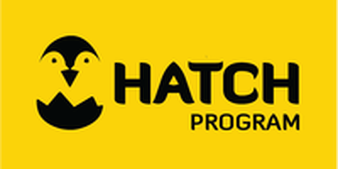
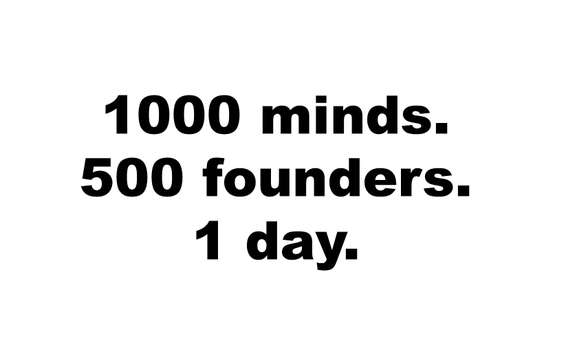


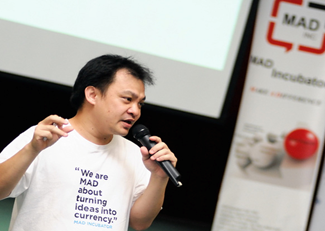
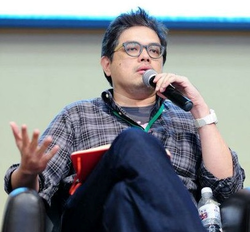
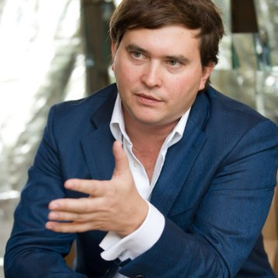



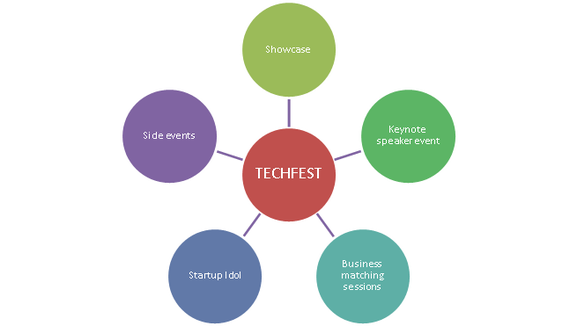




 RSS Feed
RSS Feed

